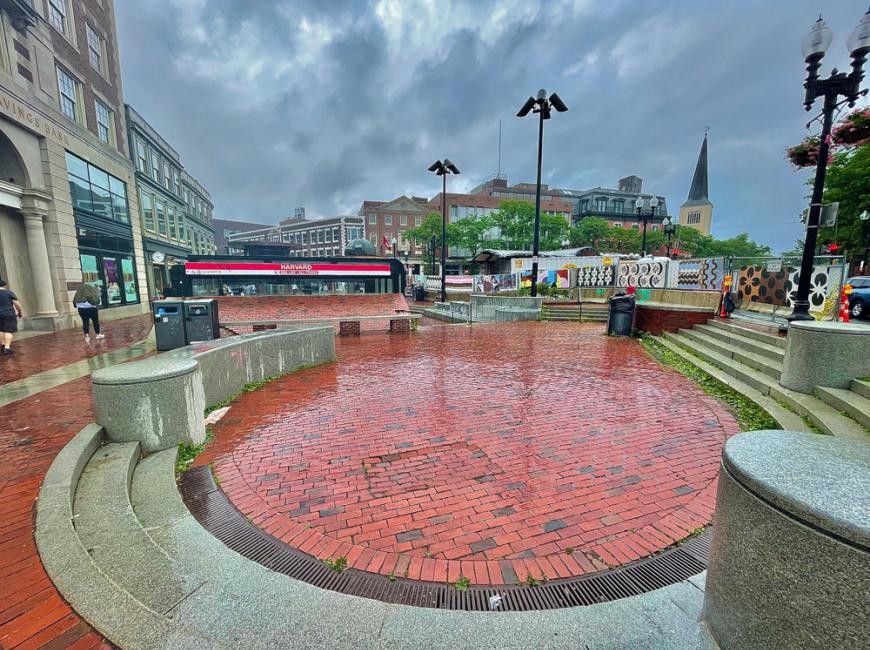Massachusetts has long been a hub of technological innovation, and its influence in the field of cybersecurity is no exception, so if you’d like to know more, read on for more on the origins of Massachusetts cybersecurity.
The state is home to renowned institutions like the Massachusetts Institute of Technology (MIT) and has played a significant role in shaping the landscape of ethical hacking, penetration testing, and cybersecurity. This article delves into the rich history of cybersecurity in Massachusetts, tracing its roots to MIT, the infamous LOPHT hackers, and the iconic 2600 meetups in Cambridge, as a large aspect of the development of Massachusetts Cybersecurity, and the Cybersecurity industry overall.
I remember the first 2600 meetup I ever went to. It was in Massachusetts, and I was only 16-17 or so. It was in Northampton, Ma. I had found the location posted in the meetup listings in the mag, and I went there hesitatingly. When I arrived I didn’t know if there was was some sort of pass-phrase or secret nod I needed to have. Lo and behold, the guys that were there were just sipping coffee, and there wasn’t any meetup at all. Later, when I’d just graduated from high school, I would go into the city of Cambridge/Boston from Western Mass. I would go with friends and was always able to achieve two things at a time on a trip, I could skateboard new spots in the city, and also see and chat with the hackers from MIT. I’d see them riding their eccentric lit up bikes around Harvard square with my friends, and I knew what they were about when I saw some even had computers strapped to their bikes down tubes. The pit at Harvard square was the spot for them, and I remember thinking just how cool that spot seemed to be. It was in the city limits, and there were hackers riding around on bikes near some of the best tech colleges on the planet! What else could a young hacker need? Read on for more Massachusetts Cybersecurity…

MIT: A Cradle of Technological Prowess
MIT, located in Cambridge, has consistently been at the forefront of technological advancements. With a strong emphasis on research and innovation, MIT has produced some of the brightest minds in the tech world. In the realm of cybersecurity, MIT has contributed significantly to the development of secure systems and cutting-edge technologies.
MIT’s Computer Science and Artificial Intelligence Laboratory (CSAIL) has been instrumental in fostering research that addresses the evolving challenges in cybersecurity. From cryptographic protocols to network security, MIT researchers have consistently pushed the boundaries of what is possible in the digital realm.
One notable MIT alumnus who made a mark in cybersecurity is Dan Geer. Geer, known for his expertise in information security and risk management, has played a pivotal role in shaping the discourse around cybersecurity policies and practices.
LOPHT Hackers: Pioneers in Ethical Hacking
During the 1990s, a group of hackers emerged from the underground hacking scene in Boston, calling themselves the LOPHT (pronounced “loft”) hackers. Comprising individuals like Mudge (Peiter Zatko), Weld Pond (Chris Wysopal), and others, LOPHT gained notoriety for its groundbreaking work in ethical hacking and vulnerability research.
The LOPHT hackers were pioneers in exposing vulnerabilities in computer systems and advocating for improved cybersecurity measures. Their efforts led to a greater understanding of the importance of ethical hacking and the need for proactive security measures in the rapidly evolving digital landscape. Read on for more Massachusetts Cybersecurity…
2600 Meetups: A Gathering of Minds in Cambridge
The 2600 meetups, organized by the hacker quarterly magazine “2600: The Hacker Quarterly,” have been an integral part of the hacker and cybersecurity community in Massachusetts. These meetups, held in Cambridge and other locations, provide a platform for like-minded individuals to discuss technology, security, and hacking in a collaborative and open environment.
Attendees at 2600 meetups include cybersecurity professionals, enthusiasts, and individuals interested in the ethical exploration of technology. The exchange of ideas and knowledge at these meetups has fostered a sense of community and contributed to the growth of ethical hacking practices in the region.
The 128 Corridor: Foundation of Tech Excellence
The Massachusetts Route 128 Technology Corridor, often referred to simply as the “128 Corridor,” is a region known for its concentration of technology and innovation companies. Stretching from Boston to Gloucester, this corridor has been a breeding ground for technological excellence, providing a solid foundation for the growth of the cybersecurity industry.
Companies and organizations along the 128 Corridor have been at the forefront of cybersecurity innovation. The proximity of these entities has facilitated collaboration, information exchange, and the pooling of talent, contributing to the robust ecosystem of cybersecurity expertise in the region.

Continued Growth of Pentesting in Massachusetts
With the strong foundation laid by institutions like MIT, the influence of the LOPHT hackers, and the collaborative spirit of the 2600 meetups, Massachusetts is poised for the continued growth of penetration testing and cybersecurity.
The state’s commitment to technological advancement, coupled with the active involvement of cybersecurity professionals and organizations, ensures that Massachusetts remains a leader in the field. The inter connectedness of academia, industry, and the hacker community provides a unique ecosystem that fosters innovation and drives the evolution of cybersecurity practices.
As cyber threats continue to evolve, the need for skilled professionals adept in penetration testing becomes increasingly critical. Massachusetts, with its rich history and ongoing commitment to cybersecurity excellence, is well-positioned to play a pivotal role in shaping the future of penetration testing on a global scale. The legacy of MIT, the spirit of the LOPHT hackers, and the collaborative energy of 2600 meetups all contribute to the vibrant cybersecurity landscape in the state, ensuring its continued prominence in the ever-changing world of technology and security. This is my post on Massachusetts Cybersecurity.
Leave a Reply